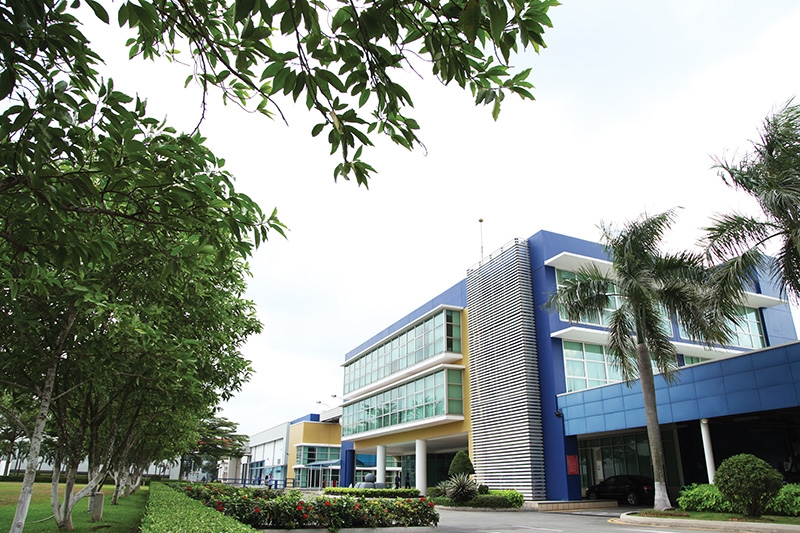More action taken to protect environment
 |
| Businesses are striving for greener and cleaner processes |
Last November, the Ministry of Industry and Trade held a review conference in Danang on 10 years of implementation of the Cleaner Production Strategy for Industry to 2020, as well as the launch of a National Action Programme on Sustainable Production and Consumption for the 2021-2030 period.
The Cleaner Production Strategy was so strongly deployed at launch, that by 2015 it had achieved most of its objectives.
Cleaner production is widely applied in industries in order to increase the utilisation of efficiency of natural resources, material, and fuels; reduce emission and minimise the pollution acceleration rate; and protect and improve environmental quality, human health, and ensure the sustainable development.
If the Cleaner Production Strategy focused on using natural resources and energy efficiently and economically in production activities, the National Action Programme focuses on maintaining the value chain of natural resources and energy in its entire life cycle.
The programme sets out the general objectives of promoting efficient and sustainable management, exploitation, and use of natural resources and energy; and increasing the use of environmentally-friendly, renewable, reusable, and recycled natural resources, as well as raw materials, energy, and products.
It also aims to promote sustainable production and consumption on the basis of innovation, creativity, practice, and development of sustainable production and consumption models; promoting sustainable domestic production and consumption; creating stable jobs and green jobs; and enhancing life quality for people towards the development of the circular economy in Vietnam.
Before this macro-programme was introduced, many organisations and companies have committed to their responsibility to the environment. Many businesses have invested and innovated to minimise the damage to the environment, and applied a circular economy for better environment. BAT and Emic Hospitality are among the companies making great efforts in reducing the harmful effects of air pollution and environmental pollution.
For the past six years, the BAT-Vinataba Joint Venture Company in Dong Nai province has pursued initiatives to utilise or reuse scrap, which has brought about positive impacts on the environment, according to Le Hoang Phuc, head of Technical and Environmental Health and the Safety Department.
The factory currently has more than 100 employees and is specialised in producing tobacco and developing tobacco-growing areas. Being a large factory, BAT consumes a huge amount of energy and waste sources such as steam from the drying system and production wastewater. Conscious of remaining part of the circular economy, BAT has implemented energy efficiency management programmes, used German advanced technology dust filter and deodorising systems, and managed odours and dust being released into the environment.
Phuc introduced many activities that are being implemented, such as using rainwater instead of source water for the factory, wastewater meeting Standard A before being released into the environment, reusing water for deodorising systems, and ensuring all waste is sorted at source. The result is that annual water use has decreased from 2.2 cubic metres per tonne of product to 1.82cu.m per tonne of product.
By September 2020, with ceaseless efforts to overcome all challenges, the factory has made some significant achievements in the journey of environmental protection by ensuring absolutely no burial waste at the factory. Phuc is proud that now all waste is sorted at source and transferred to functional units for treatment. Carton boxes are also screened and reused multiple times in production.
In order to archive this, the joint venture company encourages their employees to follow the rules, including minimising disposable plastic in the office, sorting waste at source, and reusing if possible.
Similarly, Phan Xuan Thanh, director of Emic Hospitality Co., Ltd., in the central province of Quang Nam, also shared that the company pursues a sufficiency economy philosophy towards environmental protection and sustainable development. That journey started from the sorting and treatment of waste to serve organic agriculture in a closed circulation process, supporting organic vegetable farmers, and saying no to plastic bags.
What the stars mean:
★ Poor ★ ★ Promising ★★★ Good ★★★★ Very good ★★★★★ Exceptional
Related Contents
Latest News
More News
- Bac Ai Pumped Storage Hydropower Plant to enter peak construction phase (January 27, 2026 | 08:00)
- ASEAN could scale up sustainable aviation fuel by 2050 (January 24, 2026 | 10:19)
- 64,000 hectares of sea allocated for offshore wind surveys (January 22, 2026 | 20:23)
- EVN secures financing for Quang Trach II LNG power plant (January 17, 2026 | 15:55)
- PC1 teams up with DENZAI on regional wind projects (January 16, 2026 | 21:18)
- Innovation and ESG practices drive green transition in the digital era (January 16, 2026 | 16:51)
- Bac Ai hydropower works stay on track despite holiday period (January 16, 2026 | 16:19)
- Fugro extends MoU with PTSC G&S to support offshore wind growth (January 14, 2026 | 15:59)
- Pacifico Energy starts commercial operations at Sunpro Wind Farm in Mekong Delta (January 12, 2026 | 14:01)
- Honda launches electric two-wheeler, expands charging infrastructure (January 12, 2026 | 14:00)

 Tag:
Tag:


















 Mobile Version
Mobile Version